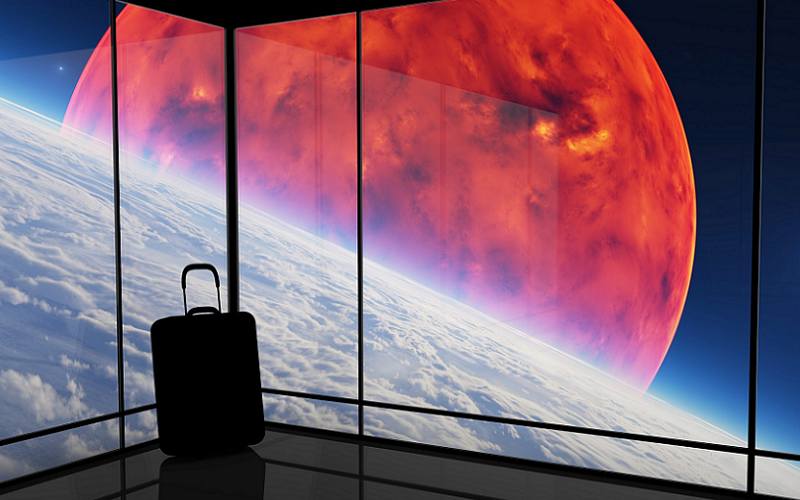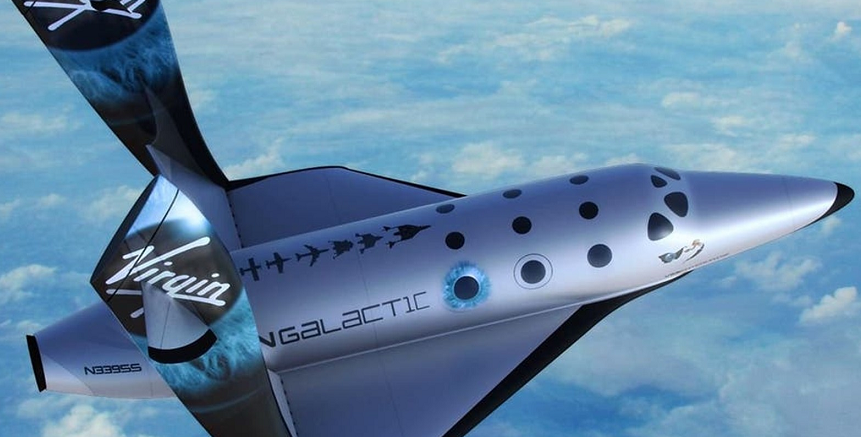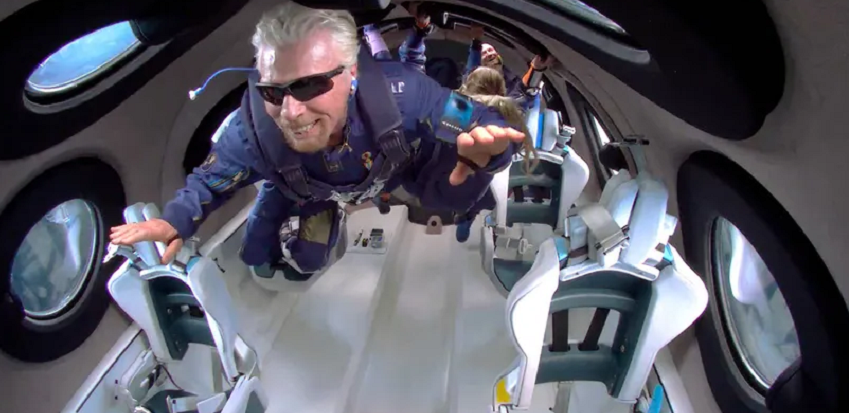
Space tourism, once a far-fetched concept reserved for the realms of science fiction, is now on the verge of becoming a reality. With private companies like SpaceX, Blue Origin, and Virgin Galactic leading the charge, and governments around the world recognizing the potential for growth, the space tourism industry is poised to take off. As we stand at the precipice of this new era, it is crucial to explore the potential economic implications of this groundbreaking venture.
Overview of the Concept of Space Tourism
Space tourism is an emerging industry that offers civilians the opportunity to venture beyond Earth’s atmosphere and experience the wonders of space firsthand. With the recent advances in technology and the growing interest in space exploration, the idea of commercial space travel is transforming from a distant dream into a tangible reality.
The concept of space tourism has evolved over time, starting with early visions of lunar hotels and orbiting space stations. Visionaries like Arthur C. Clarke and Wernher von Braun first popularized the idea in the mid-20th century, and since then, the space tourism industry has been steadily gaining momentum. The ultimate goal of space tourism is to democratize access to space, enabling people from all walks of life to experience the unique thrill of traveling through the cosmos.
At its core, space tourism can be broadly categorized into three primary types:
- Suborbital space tourism: This form of space travel involves a short, parabolic flight that takes passengers to the edge of space, providing them with a brief experience of weightlessness and a breathtaking view of Earth from above. Suborbital flights do not complete a full orbit around the Earth, and as such, they offer a more affordable and accessible entry point into space tourism.
- Orbital space tourism: This level of space travel involves reaching Earth’s orbit, usually aboard a spacecraft designed to carry passengers for several days. Orbital space tourists can experience extended periods of microgravity, witness multiple sunrises and sunsets, and observe our planet from a unique vantage point. These journeys typically require more advanced technology and training, and thus, come with a higher price tag.
- Lunar and interplanetary space tourism: The most ambitious form of space tourism, lunar and interplanetary travel, involves voyages to the Moon, Mars, or other celestial bodies. While these endeavors are still in the early stages of development, they represent the ultimate goal of space tourism – allowing humans to explore and potentially colonize other worlds.

Economic Opportunities Created by Space Tourism
The emergence of space tourism presents a myriad of economic opportunities that can potentially drive growth and innovation across various sectors. As the industry continues to develop, it is expected to create new jobs, foster infrastructure development, spur technological advancements, and give rise to new markets and business opportunities.
Job Creation
As demand for space tourism grows, so too does the need for skilled professionals to design, build, and operate spacecraft, launch vehicles, and supporting infrastructure. This leads to the creation of jobs in aerospace engineering, research and development, mission control, and astronaut training, among others.
The space tourism industry also generates employment opportunities in related fields such as hospitality, tourism, marketing, and logistics. Spaceports, for instance, will require staff to manage operations, while travel agencies will need experts to handle bookings and tailor space tourism experiences for clients.
Infrastructure Development
The expansion of space tourism necessitates the construction of spaceports and launch facilities that can accommodate commercial spaceflights. These projects will not only create jobs in construction, engineering, and operations but also stimulate local economies through increased demand for goods and services.
The maintenance and servicing of spacecraft and launch facilities will require specialized personnel and equipment, creating opportunities for both local and international businesses to provide essential services and support.
Technological Advancements and Innovation
The development of reusable spacecraft and launch vehicles, such as SpaceX’s Starship and Blue Origin’s New Shepard, has the potential to significantly reduce the cost of space travel. This, in turn, can drive further investment in space tourism and related technologies.
As space tourism matures, the demand for comfortable and luxurious accommodations in space is likely to grow. This creates opportunities for innovation in the design and construction of space habitats, hotels, and recreational facilities.
The unique environment of space offers potential for novel manufacturing processes, such as producing materials with unprecedented properties or assembling large structures in microgravity. These advancements could have far-reaching implications for industries on Earth.
New Markets and Business Opportunities
As space tourism becomes increasingly popular, companies may look to capitalize on the opportunity by advertising their products and services to a captive audience of space tourists.
Space tourism opens up new possibilities for entertainment and media, from live-streaming astronaut experiences to producing films or reality shows set in space.
The growth of space tourism will inevitably bring unique risks and legal challenges, creating demand for specialized insurance products and legal expertise to navigate the complex landscape of space law and liability.

Challenges and Potential Downsides of Space Tourism
While the space tourism industry presents numerous economic opportunities, it also faces a range of challenges and potential downsides.
Environmental Concerns
The launch of rockets into space generates substantial greenhouse gas emissions, which contribute to climate change. The use of certain types of rocket propellants can result in the release of ozone-depleting substances. As the frequency of space launches increases with the growth of space tourism, these environmental impacts will need to be carefully managed.
The accumulation of non-functioning satellites, spent rocket stages, and other debris in Earth’s orbit poses a significant risk to operational spacecraft and satellites. As the number of launches for space tourism purposes rises, the potential for space debris to cause collisions or damage to vital infrastructure also increases.
Economic Barriers and Inequality
At present, the cost of space tourism remains prohibitive for the vast majority of people. This raises concerns that the industry will primarily benefit the wealthy, exacerbating existing social and economic inequalities.
In order to ensure that space tourism becomes more inclusive, it is crucial to develop more cost-effective technologies and infrastructure that can reduce the cost of space travel, making it accessible to a broader range of people.
Regulatory and Legal Challenges
The expansion of space tourism raises a host of legal questions relating to safety, liability, and the use of celestial resources. Existing international space law, such as the Outer Space Treaty, may not adequately address these issues, necessitating the development of new regulations and agreements to govern space tourism activities.
Ensuring the safety of space tourists is paramount, and the industry must establish rigorous safety standards and protocols to minimize the risk of accidents. This includes determining liability and insurance requirements in the event of an accident, as well as establishing guidelines for the training and certification of space tourists and crew.

Future Prospects of Space Tourism
The space tourism industry is in its nascent stages, but the rapid advancements in technology and growing interest from both private companies and government agencies indicate a promising future. In this section, we will examine the anticipated growth and expansion of the industry, as well as its long-term economic impact and potential to drive broader economic growth and development.
Expected Growth and Expansion of the Industry
As space tourism becomes more accessible and affordable, the demand for space travel experiences is expected to grow, driving further investment and innovation in the industry.
The future of space tourism is likely to encompass a wide array of experiences, from suborbital flights and orbital stays to lunar landings and interplanetary voyages. This diversification will create new opportunities for companies and entrepreneurs to cater to various customer preferences and budgets.
As the industry expands, it is anticipated that greater international cooperation will emerge between space-faring nations and private companies, fostering the exchange of technology, knowledge, and resources to advance space tourism.
Long-Term Economic Impact on Earth’s Economy
The growth of the space tourism industry is expected to contribute significantly to the global economy, generating billions of dollars in revenue and creating thousands of jobs across various sectors.
The advancements in technology and infrastructure spurred by the space tourism industry can have positive spillover effects on other industries, such as telecommunications, renewable energy, and materials science. This can lead to broader economic growth and development.
The expansion of space tourism is likely to give rise to entirely new markets and industries, such as space-based manufacturing, asteroid mining, and space agriculture. These new industries can further stimulate economic growth and create new opportunities for businesses and entrepreneurs.
Potential for Space Tourism to Drive Broader Economic Growth and Development
The construction of spaceports and related facilities can spur the development of new urban centers and infrastructure, leading to economic growth in the surrounding areas.
The space tourism industry’s demand for skilled professionals can encourage investment in education and workforce development programs, helping to prepare future generations for careers in the space sector and related fields.
The growth of space tourism can foster increased international cooperation and diplomacy, as nations work together to address common challenges and share resources in the pursuit of space exploration.







